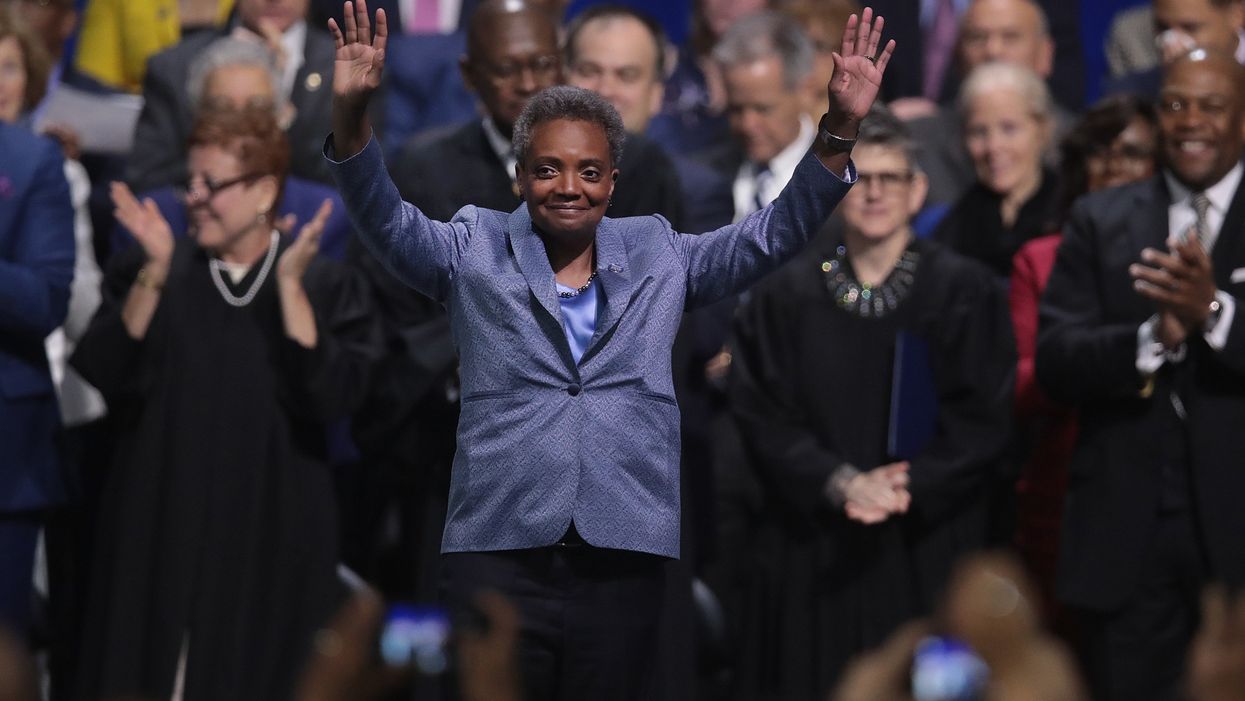Risman is a distinguished professor of Sociology at the University of Illinois at Chicago. Percheski is an associate professor of sociology and faculty fellow of the Institute for Policy Research at Northwestern University. They co-chair the Chicagoland chapter of the Scholars Strategy Network.
With the first presidential debates behind us and the next ones rapidly approaching, the fight for the Democratic nomination is in full swing. Though the presidential hopefuls disagree on some of the specifics, the story of the 2020 election — at least at this point — is shaping out to be one that includes lots of smart policy informed by some of the best research in the field. Just look at Elizabeth Warren's relentless policy proposals that are backed by academic research and may have driven her recent surge in the polls.
As the co-leaders for the Chicagoland chapter of the Scholars Strategy Network, we applaud the use of research and evidence in campaigns, and later in policymaking. This is exactly what our organization has been working towards for years. But it doesn't just need to happen in presidential election years. Local and state candidates can and should work with academics to inform their policy proposals too. Our experiences in Chicago show a couple ways this can work.
This year, Chicago saw a historic election for the city's mayor. Following Rahm Emmanuel's withdrawal from the race, and lacking a strong front-runner, Chicago voters were asked to choose from 14 candidates, some relatively unknown. At the same time, the city was also electing 50 alderman for the Chicago City Council. With little funding and intense competition for staffers, many campaigns barely had the resources to put out detailed policy proposals, let alone do the background work of combing through the relevant literature to inform their ideas. That's not unusual in local elections.
So, our organization stepped in to help fill the gap. We reached out to the mayoral candidates and those running in run-offs for city council and provided them with policy briefs on racial segregation, pension reform and scheduling practices for workers. Limited to two pages and written in everyday English, these briefs were a quick and accessible breakdown of research on some of the biggest issues facing Chicago right now.
Of course, some candidates never responded. But many, including the staff of our new mayor, Lori Lightfoot, were appreciative of these evidence-based policy briefs. Building on this success, we are now planning to contact new aldermen to offer expert policy briefings on topics coming up for a vote in the City Council.
In reflecting on these experiences, perhaps the single biggest takeaway is that in order to bring evidence back into our policies, changes need to come from both sides.
At every level of government, and certainly here in Chicago, one of the most knowledge-rich cities in the nation, decisions should be informed by the best research and evidence. A lack of good research evidence creates a vacuum. When mayors, aldermen and their staff lack the resources to review and assess policy proposals, they end up relying on special interests and lobbyists for information. That's not a recipe for good government.
Too often, local politicians don't have the time or staff to make use of the exceptional resources in their own backyard. In many cities, there have been no coordinated efforts to enlist local research experts to solve the city's problems. It's time to change that.
Thankfully in Chicago, Lightfoot seems to be transforming the way the mayor's office works, consulting with experts more than her predecessors did. Other city leaders would do well to learn from her and implement similar practices among their staff.
To ensure new ideas and sound solutions get to policymakers, researchers must also embrace the world of public engagement. Researchers and university-based faculty can add invaluable insight during policy debates. When rising opioid death rates destabilize families, when climate-change-related disasters threaten our communities, and when housing becomes too expensive for many residents, we need new solutions. The research that members of our organization and other academics conduct at universities is critical because it is empirically sound and conducted in conjunction with the families, communities, advocacy organizations and individuals most affected by public policy.
But scientific evidence can only inform policy and practice when decision-makers have the information they need, at the time when they need it — or before. Evidence can no longer remain behind the paywalls of academic journals, written in complex jargon few can understand. Our research should serve the communities we study, by helping to inform the policies that most affect people's lives.
Some organizations, like SSN, are stepping up to bridge this gap, but much more is needed. For one, colleges and universities can and should invest more fully in helping scholarly findings make a lasting impact outside of the world of academia. Additionally, Chicago and other cities would benefit from nonpartisan, problem-solving research bureaus — the local equivalent of the Congressional Research Service — that could provide policymakers with research when they need it.
Of course, Chicago is a hub for scientific expertise, but scholars are conducting rigorous research all across the country. State and local officials everywhere likely have an expert in their area who can help answer some of their most pressing questions. And the Internet has simplified the job of finding and connecting with far away resources too.
It's time to make research and evidence part of policymaking at every level of government, in every state. And a great place to start is by informing the candidates' policy proposals during local elections, not just when a presidential race rolls around. After all, that's where some of the best and brightest ideas get their start.



















